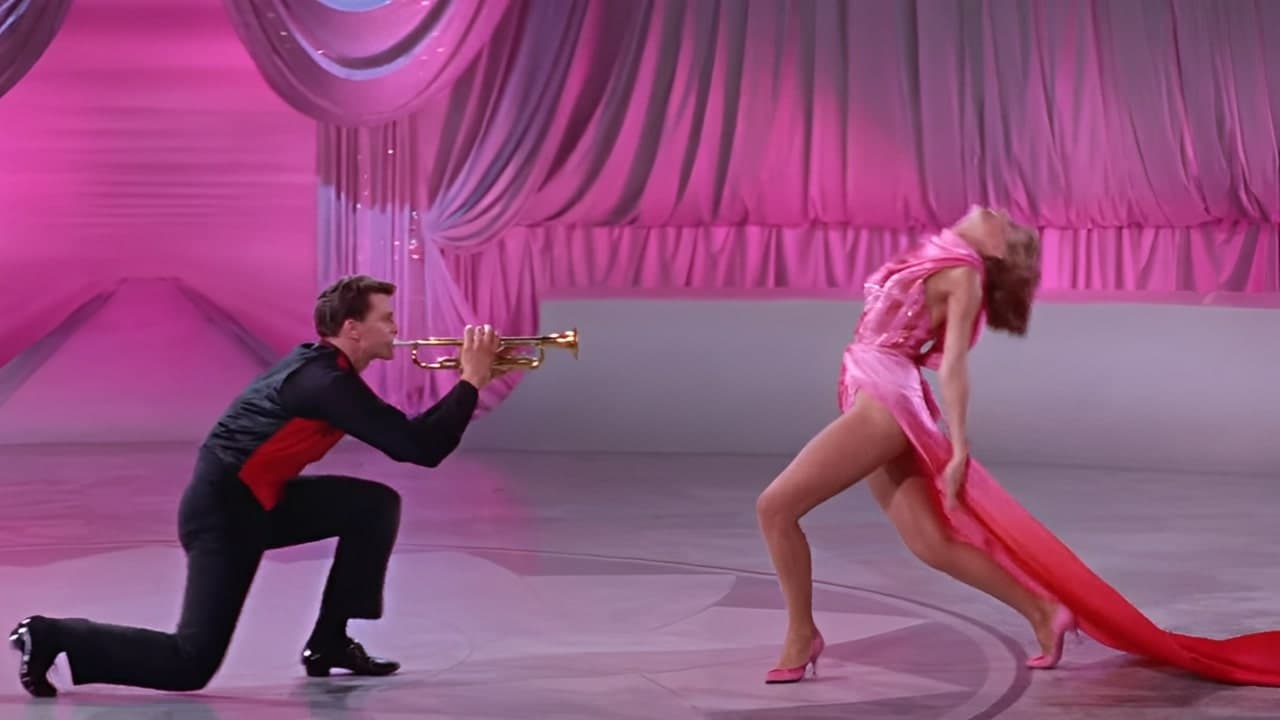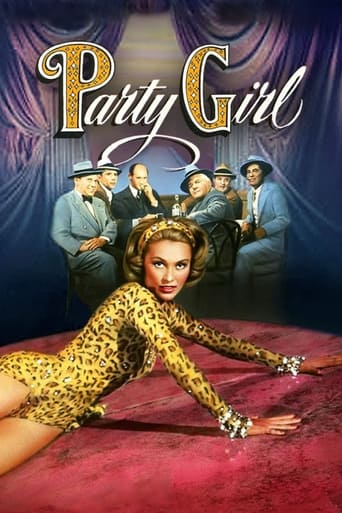ThiefHott
Too much of everything
ChicDragon
It's a mild crowd pleaser for people who are exhausted by blockbusters.
Stephanie
There is, somehow, an interesting story here, as well as some good acting. There are also some good scenes
Cody
One of the best movies of the year! Incredible from the beginning to the end.
masonfisk
Not to be confused w/the Parker Posey starrer from the 90's, this rare color noir from the 50's shot in widescreen & directed by Nicholas Ray concerns a mob lawyer finding love & vowing to try one more case & then head for the hills but his boss comes in the guise of Lee J. Cobb, who definitely won't take 'no' for an answer. With a rare dramatic turn by Cyd Charisse (she does dance here but there's definitely some meat on the bone part-wise) the tale has its share of crosses & double crosses but it really is entertaining as heck w/a great star turn by Robert Taylor who's all control & menace. Worth a look!
Robert J. Maxwell
I guess I saw this when it was released in 1958 because I seemed to remember Robert Taylor and his cane, and Lee J. Cobb clobbering somebody over the head with a gold-plated miniature baseball bat or whatever it was. The sudden eruption of violence in that scene was shocking at the time. It's since been imitated in, oh, "The Untouchables." And there's a similar scene in "Some Like It Hot." Seeing it now is something of a disappointment. Everything about the movie seems encrusted with time. I know it was directed by Nicholas Ray and I know he directed "They Live By Night", which was a nearly perfect snapshot of the time. That's precisely where this film fails -- fails distractingly.The titles tell us "Chicago: The Early 1930s." Yet what we see on screen is Hollywood: 1958. It's all splashy and colorful, and the city might as well be Caracas, Venezuela for all the local color we get. The men have slicked-backed hair, wear single-breasted powder blue suits with broad shoulders. Nobody wears a hat. Whatever appeal Robert Taylor has for women eludes me entirely. He's dark, corrugated, and scowls constantly. Well, sometimes he tries to laugh and one hears the creaking of long unused facial muscles.The ladies wear gaudy crimson gowns and costumes from a stage show, and their hair is Sidney Guilaroffed to a turn. No festoons of necklaces, no waistless dresses without boobs. Not a cloche hat in sight but plenty of bare legs. That brings us to Cyd Charisse with whom I am deeply in love, at least with her oh-so-supple undercarriage. She's beautiful and her acting talent is modest. She's a dancer, an extremely demanding profession, and she doesn't get to stretch her chops here except in two numbers, miserably choreographed, that don't do justice to her talent.The plot follows a familiar formula. You know the one about the gunfighter who tries to hang up his gunbelt but circumstances draw him back into another encounter? This is it.
dougdoepke
Nobody could do musicals as well as MGM. Same with costume dramas and period pieces. But when it came to gangster films and westerns, MGM's obsession with production values and movie stars was no asset. In short, the studio over-produced its entries in these two genres that are spare and gritty by nature. Party Girl is a perfect example. For a gangster film, it's glamorized to a fault, from the candy- box colors to Charisse's elaborate wardrobe to the super clean sets to the parade of beautiful people (especially the chorines). And not even the two veteran heavies, Cobb and Ireland, can compensate. Thus, what should be explosive gangster grit turns instead into squishy studio eye-candy.But then no one can fault Robert Taylor for not trying. He's deadly earnest throughout as the crippled mob lawyer, but it's about as glum a leading-man portrayal as I have seen. Nonetheless, that's okay since we understand why he's so glum, being crippled and indentured to the mob. The trouble is that it puts a boring one-note performance in the movie's center—just count his changes of expression or even a smile. Charisse, of course, is a real treat for the guys, but no actress even though she too strives gamely. At the same time, the usually reliable Lee Cobb mails in one of his patented loud-mouth portrayals as the voluble mob boss. Still, I'm with the critic who wanted to see more of Corey Allen (Cookie) whose edgy hoodlum provides what the movie needs.Then too, I see nothing of the great director Nick Ray in the results, except maybe for one scene. That's where Angelo (Cobb) presents an award in highly unusual fashion before a banquet assemblage, a noisy El-train in the background indicating the trouble ahead. Then the violence comes like a bolt of lightning, a real stunner almost worth the whole movie. Otherwise, it looks to me like Ray was hemmed in by casting and scripting, and took the unfinished project (Bob Wise started it) as a payday.However that may be, MGM could have wisely gone the Funny Girl (1968) route and done a musical with underworld overtones instead of vice-versa. After all, musicals were the studio's specialty. Because, for all the talent involved, the Party Girl mix just doesn't gel.
misctidsandbits
Having passed up this movie many times, I decided to check it out when it came up again on TCM recently. Now that you can tape something and scan through, it is easier to evaluate before you waste your time. Going through, I noticed Robert Taylor coming across better than I've ever seen him. He was the main deterrent before. I've never thought him good enough looking to put up with, especially when the main lead. But seeing Lee J. Cobb in it and really liking the deep color, I became interested. Also, have always liked Cyd Charisse's dramatic persona – generally smooth, no overstatement. Her musical numbers were rather enlarged for the type of film, but guess they couldn't resist. And, MGM could really come up with some odd titles.Taylor proved to be convincing and capable throughout. Enjoyed him and Charisse together and definitely the visual. Cobb seems to have been used a lot for the more gregarious type, like the crime boss here. I initially saw him in roles as the no nonsense good guy, and I think I prefer him as that. He played that very effectively in "The Virginian" television series. He was the strong guiding hand, somewhat a father figure, who could bring up the volume when needed and take care of any foolishness, with dispatch. His screen time as such was my favorite part of that interesting series.Hey, it's a Hollywood movie, which is going to have some form of the Hollywood treatment, both good and bad. If you can anticipate and accept any given film's set of excesses and idiosyncrasies, it's easier to enjoy what is enjoyable to you. This one is liberally laced with improbables, for one thing. Again, expect that and other unrealities from old Hollywood. It's the nature of the genre. I certainly prefer it to where they've gone now. For this one, I could ignore the improbables and move along with things. The relationship of Taylor and Charisse (and the quality of the visual) captured this movie out from the ranks of ones I would usually pass over.

